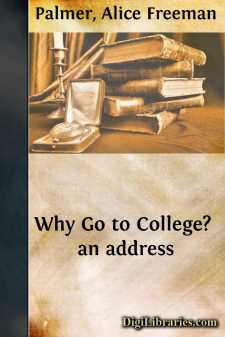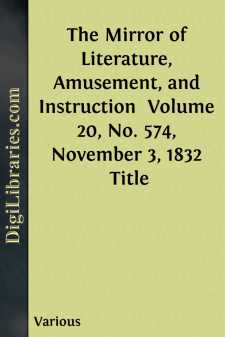Categories
- Antiques & Collectibles 13
- Architecture 36
- Art 48
- Bibles 22
- Biography & Autobiography 813
- Body, Mind & Spirit 142
- Business & Economics 28
- Children's Books 15
- Children's Fiction 12
- Computers 4
- Cooking 94
- Crafts & Hobbies 4
- Drama 346
- Education 46
- Family & Relationships 57
- Fiction 11828
- Games 19
- Gardening 17
- Health & Fitness 34
- History 1377
- House & Home 1
- Humor 147
- Juvenile Fiction 1873
- Juvenile Nonfiction 202
- Language Arts & Disciplines 88
- Law 16
- Literary Collections 686
- Literary Criticism 179
- Mathematics 13
- Medical 41
- Music 40
- Nature 179
- Non-Classifiable 1768
- Performing Arts 7
- Periodicals 1453
- Philosophy 64
- Photography 2
- Poetry 896
- Political Science 203
- Psychology 42
- Reference 154
- Religion 513
- Science 126
- Self-Help 84
- Social Science 81
- Sports & Recreation 34
- Study Aids 3
- Technology & Engineering 59
- Transportation 23
- Travel 463
- True Crime 29
Sort by:
by:
Various
THE CATACOMBS OF ROME. ————parti elette Di Roma, che son state cimitero Alla milizia che Pietro seguette. PARADISO, c. ix. "Roma Sotterranea,"—the underground Rome of the dead,—the buried city of graves. Sacred is the dust of its narrow streets. Blessed were those who, having died for their faith, were laid to rest in its chambers. In pace is the epitaph that marks the places where...
more...
CHAPTER I. AN ONLY SON. Good Squire Tufton of Gablehurst lay dying. He had been ailing for many months, knowing his end to be near; and yet, as is so often the case in lingering declines, death was long in coming, so that those about him had grown used to the sight of the strong figure wasted to a shadow, and the face shadowed by the wings of the hovering messenger. Some members of the household,...
more...
The Memoirs of the time of Napoleon may be divided into two classes—those by marshals and officers, of which Suchet's is a good example, chiefly devoted to military movements, and those by persons employed in the administration and in the Court, giving us not only materials for history, but also valuable details of the personal and inner life of the great Emperor and of his immediate...
more...
To a largely increasing number of young girls college doors are opening every year. Every year adds to the number of men who feel as a friend of mine, a successful lawyer in a great city, felt when in talking of the future of his four little children he said, "For the two boys it is not so serious, but I lie down at night afraid to die and leave my daughters only a bank account." Year by year,...
more...
CHAPTER I DESTRUCTION MARKS THE GERMAN RETREATâTHE FRENCH CAPTURE SOISSONS, FISMES, AND IMPORTANT POSITIONSâTHE BRITISH WIN GREAT VICTORIES NEAR ALBERT The continued advance of the Allies in the first days of August, 1918, along the front from Soissons to Rheims was a decisive blow to the German hopes of gaining Paris; the capital was no longer threatened. The hard-pressed foe was now forced...
more...
CHAPTER I. REVOLUTIONARY TRADITIONS. Middle Georgia—Colonel David Love—His Widow—Governor Dunmore— Colonel Tarleton—Bill Cunningham—Colonel Fannin—My Grandmother's Bible—Solomon's Maxim Applied—Robertus Love—The Indian Warrior— Dragon Canoe—A Buxom Lass—General Gates—Marion—Mason L. Weems— Washington—"Billy Crafford." My earliest memories are...
more...
by:
Various
A DECLARATION. When, in the course of human events, it becomes necessary for one people to dissolve the political bands which have connected them with another, and to assume among the powers of the earth the separate and equal station to which the laws of nature and of nature's God entitle them, a decent respect for the opinions of mankind requires that they should declare the causes which impel...
more...
INTRODUCTION (The Planting of the First Colonies) After the discoverers and explorers of the sixteenth century came (chiefly in the seventeenth) the founders of settlements that grew into States—French Huguenots in Florida and Carolina; Spaniards in St. Augustine; English Protestants in Virginia and Massachusetts; Dutch and English in New York; Swedes in New Jersey and Delaware; Catholic English in...
more...
by:
Oliver Optic
"Kate!" said Mrs. Lamb to her daughter, who was playing in the garden, in front of the house. "What do you want, mother?" replied the little girl, without even lifting her eyes from the ground, in which she was planting a marigold. I don't think any of my young readers regard this as a proper answer for a little girl to make to her mother; and I hope none of them ever speak to...
more...
by:
Various
LYDFORD BRIDGE.Lydford Bridge. LYDFORD BRIDGE. This is an interesting scene from the wild and wonderful in Nature. Its romantic luxuriance must win the attention of the artist, and the admiration of the less wistful beholder; while the philosophic mind, unaccustomed to vulgar wonder, may seek in its formation the cause of some of the most important changes of the earth's surface. Our esteemed...
more...











